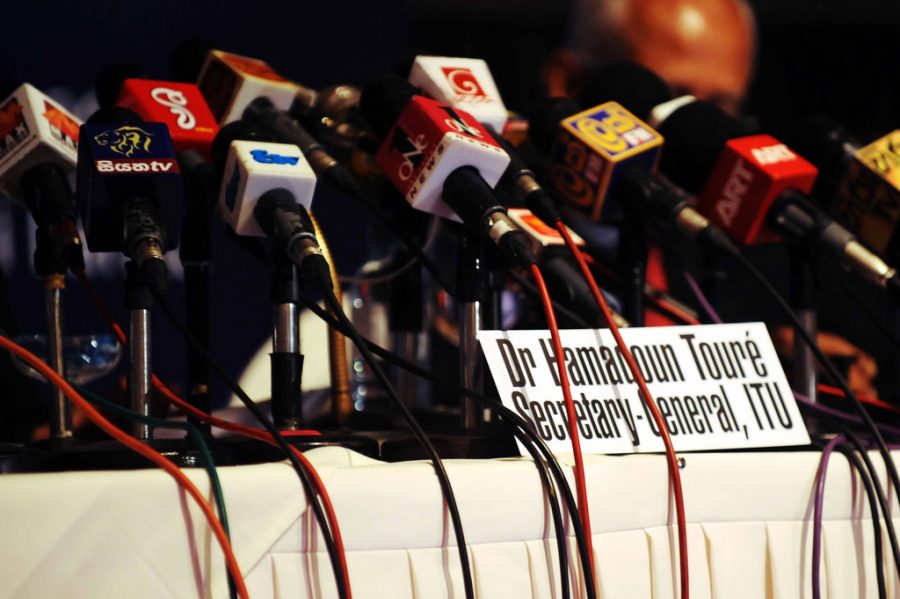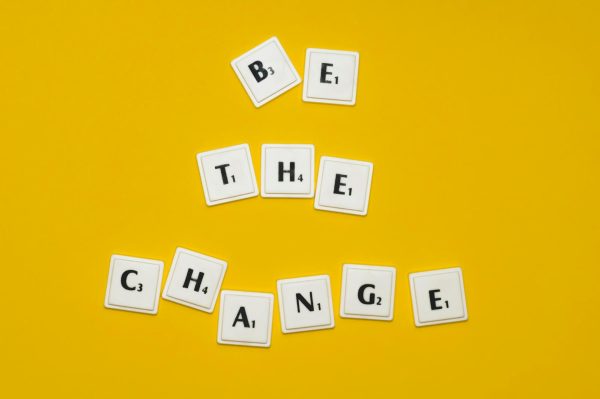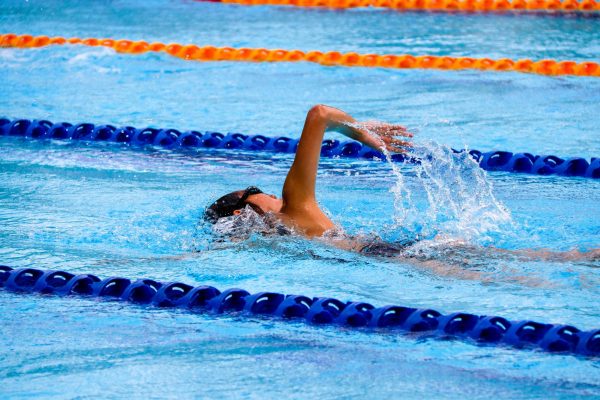Learning from the Best
Having a role model is important for everyone, but especially in the difficult
world of journalism. On the 6th of March, the FISH staff had the honor of
interviewing the author and journalist Carol Kloeppel.
The experienced writer educated the FISH staff on struggles that journalists deal
with, such as coming up with ideas. For the FISH staff, or any journalist, coming
up with what you want to write an article about, is one of the most important
steps to your finished work. Kloeppel advised the young writers that the author
should put oneself in the audience’s shoes, referring to, when she is writing for
the expat community, she tries “to put [herself] in people’s place who are new to
Germany” and listens to “what kind of stories might be interesting to them”.
Writer’s block can be fought, Kloeppel tells us, through writing “down a list of
things or people” one would like to write about; brainstorming is the key. Paying
attention to your audience is also very important. She and her colleagues,
therefore, as they write or translate articles for the expat community, try to find
topics, which are of interest to the international community. The women’s
marches around the world, local traditions, laws or customs, or big events
happening in the area are examples of these articles.
Kloeppel also addresses what many of our FISH staff are concerned about: how
to establish a future in the journalism career. That first internship is what counts
and creating a portfolio of your articles is important. This gives you “this gives
you the opportunity to get real life experience and also show what you can do”,
which is what is so important in journalism. As Kloeppel pointedly sums it
together: “It’s basically getting your foot in the door.” Studying something that
helps you get on the path for journalism is also perhaps recommended. For
example, Kloeppel studied Speech Communications with a focus on broadcasting.
Through this degree, she got an internship at a magazine show and even got to
produce a travel segment. However, she quickly realized this was too much
“fluff” for her, but still, this “getting your foot in the door” helped her accomplish
her dreams. She “preferred news” and went, at the same TV station, to the news
section. The internship at the magazine allowed her to gather experience needed
for the internship at the news section. The first job is what counts.
Nevertheless, a bachelor in journalism is not necessarily required, the published
author informed us. One can also specialize and then after getting a Bachelor in a
specific area, gain a Masters in journalism, perhaps. For example, one can get a
degree in agriculture and later go on to journalism school, or one can study
music and parallel to that get a minor in creative writing, and go on to write
about music. One doesn’t need to think “I need to get that journalism degree.”
What Carol Kloeppel also emphasized for aspiring journalists, is building your
portfolio and having an accumulation of your work to give to your potential
employer. Employers “want someone who has shown a passion” for journalism
and writing. Always keep writing on the side and “keep trying to get your articles
published.”
Kloeppel personally realized journalism was for her when she was able to travel
around the US and be on location, where “news is being made”. For her, this is
“the coolest thing in the world.” Understandably, she viewed it as a privilege to
be able to have a pass that opens doors to exclusive buildings, such as the United
Nations, and NYPD.
However, the FISH not only discussed journalism as a career path with Carol
Kloeppel, but also writing generally. A constant issue journalists have, especially
nowadays, is the task of writing objectively. This matter of objectivity is notably
becoming an issue in the US where people have grown accustomed to watching
only news stations that reflect their personal worldview.
As Kloeppel mentions, many journalists are accused of being too emotional when
it comes to Trump. When trying to conquer this problem, Kloeppel says it is
important to stick to the facts in any article, and “tell the truth.” In this regard,
credible sources are crucial. But she admits that she personally does not have
experience in writing about politics. She loves op-ed pieces and enjoys reading
them from a variety of sources from New York Times to FOX.
An additional topic discussed was the translation from German to English, which
can naturally be transferred to any language switch. As Kloeppel points out, each
word has a different connotation and it’s very difficult to find that perfect match
between different languages. This transition from English to German, from the
United States to Germany, is also discussed in her book “Dear Germany”.
Generally, a large variety of topics were discussed and each FISH member
definitely enjoyed and gained new, valuable knowledge from our interview
with Carol Kloeppel. We were very lucky to be able to interview such an
experienced journals as Carol Kloeppel.









Aodhnait Donnelly • Mar 28, 2017 at
Well done Helen. It is true there are many different ways in journalistic writing. It is a very noble and valuable career choice. I hope your article inspires other students to consider it and maybe even write for the Fish!
Paul Fochtman • Mar 28, 2017 at
Wonderful opportunity to speak with Carol. I recall a student stressed over her IB course selection, as if she didn’t take the right class in IB, she’d never be journalist! I’m happy to see your article demonstrates the attributes of journalist, rather than a path. Arwa Damon in another interesting international school educated journalist who has had quite an interesting career.